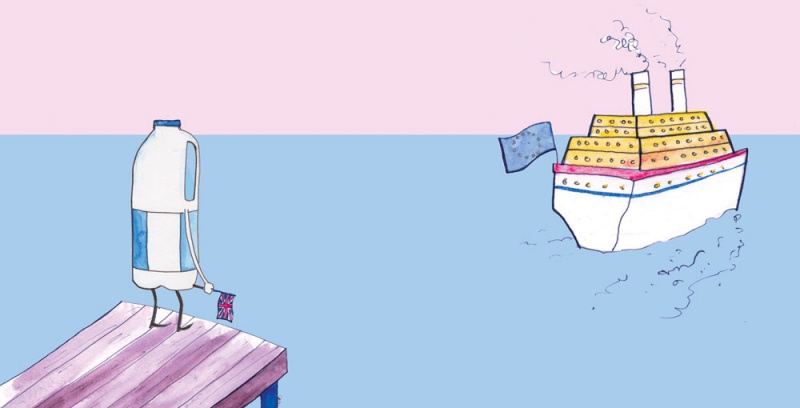A Sideways View: Deposit return and the trap of eternalism
Ray Georgeson wonders if calls for the return of a bottle deposit return system are fuelled more my nostalgia than by forward-thinking policy-making

I have always been fond of the idea of a deposit on drinks containers to facilitate their recovery for reuse and recycling. I suspect my fondness is rooted in the warm haze of childhood memories, most prominent of which were my primary school years in Zambia in the late 1960s. There, the combination of the visceral power of the memory of an ice-cold glass bottle of Fanta on a hot day and the mischief that some of the older boys got up to when taking the bottles back to Mr Banda’s shop evoke nostalgic warmth. Mischief? Well, it mainly involved pinching empties out of the crates when Mr Banda wasn’t looking and then taking them back in again to claim a further redemption…
The nostalgia doesn’t end there. Back in the dank streets of Wigan some years later, the Corona Man was still part of weekly life, his lorry clanking and rattling to a halt as last week’s empties were exchanged and redeemed for this week’s ration of Dandelion and Burdock and Cream Soda. I was always a Dandelion and Burdock man myself, I never really understood Cream Soda. Certainly in our part of the world, the Corona Man or the ‘Pop Man’ were a regular and familiar sight. While there is little chance of their return, the nostalgia behind the memory may well be part of the current mood and interest in bringing back the deposit.
I wonder if this is in the back of the mind of the Environment Secretary as he announces that Defra will actively consider the prospect of reintroducing deposits and asks for evidence to be assembled? Given that much of his recent political activity as a prominent Leave campaigner in the EU referendum seems to me to be steeped in the trap of eternalism, perhaps I can be forgiven for this speculation. Modest though it may be, bringing back the deposit on the pop bottle seems to chime well in the post-Brexit ‘vision’ of a buccaneering, free-trading Britain, sailing the seven seas with our wares, reasserting our independence and authority, describing other Europeans as ‘them’ or even ‘the enemy’. I’m not sure if this eternalism is trapped in the 1950s or even the 1850s, but it’s a vision I don’t share.

Older readers may recall an earlier burst of British nostalgia, from John Major in 1993 at the height of his own troubles over Britain’s future in Europe. While asserting that Britain’s future lay in Europe, he was at pains to say that the character of Britain would ‘survive unamendable in all essentials’ and that ‘fifty years from now, Britain will still be the country of long shadows on county (cricket) grounds, warm beer, invincible green suburbs, dog lovers and - as George Orwell said – old maids bicycling to Holy Communion through the morning mist.’
We know that he was trying to say that we can perfectly well be British and European at the same time and play our full part in European affairs, but his highly selective imagery didn’t really endear many to his argument. His use of Orwell was also unfortunately selective. Orwell actually wrote: ‘The clatter of clogs in the Lancashire mill towns, the to-and-fro of the lorries on the Great North Road, the queues outside the Labour Exchange, the rattle of pin tables in the Soho pubs, old maids biking to Holy Communion through the mists of the autumn mornings, these are not only fragments, but characteristic fragments, of the English scene.’ Orwell wrestled with his own attempt to characterise ‘English civilisation’ at the point where Britain (and its Empire) alone faced Germany, before the entry of the US into World War Two after Pearl Harbour. Whether he succeeded better than Major is inevitably subjective, but, for my part, I think all these attempts at definition are doomed to failure - they remain trapped in an eternalism that seeks to stifle the future.
By all means, take a good look at whether bringing back the deposit on a bottle of pop is worthwhile, but beware of the trap of eternalism so eloquently set by the arch proponents of Brexit, including Mr Gove. Mind you, if it was a case of reviving pop bottle deposits and blue passports in exchange for the Single Market and the Customs Union, I’d take that…



